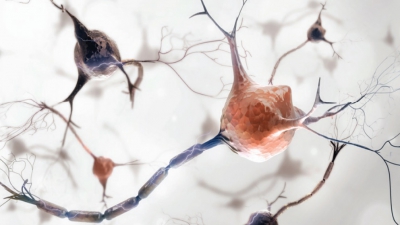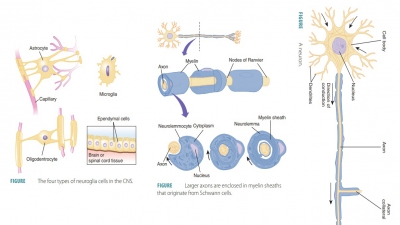Effects of Aging on the Muscular System
| Home | | Anatomy and Physiology | | Anatomy and Physiology Health Education (APHE) |Chapter: Anatomy and Physiology for Health Professionals: Support and Movement: Muscular System
Muscle tissue is formed in the mesoderm layer of the embryo in response to signals provided by fibroblast growth factor, serum response factor, and calcium.
Effects of
Aging on the Muscular System
Muscle tissue is formed in the
mesoderm layer of the embryo in response to signals provided by fibroblast
growth factor, serum response factor, and calcium. When fibroblast growth
factor is depleted, myoblasts stop dividing and secrete fibronectin onto their
extra-cellular matrix. The myoblasts then align into the myotubules followed by
actual cell fusion, which requires adequate calcium. By approximately age 25,
the skeletal muscles have reached their maximum size. After infancy and during
the toddler period, muscle tissue increases very slowly, peaking during
adolescence. Muscle is constantly built up and broken down rather evenly until
about age 30, when muscle breakdown increases. By age 40, adults begin to lose
between 0.5% and 2% of their muscle every year, though regular exercise helps
prevent this.
With aging, skeletal muscles
become less elastic as fibrosis occurs, which restricts movement and circulation. Tolerance for
exercise decreases and overheating may become a problem as a result of
exercise. The ability to recover from injuries to mus-cles decreases, limiting
repair capabilities and causing scar tissue to form. There are also losses in
agility. By the age of 50, skeletal muscles lose about 20% of their mass. By
the age of 80, they lose about 50% of their mass. For the elderly, exercise
should be regular but not extreme to avoid damage to muscles, tendons,
ligaments, bones, and joints. The common prob-lems related to aging of the
muscular system include general weakness, slower movements, stiffness,
decreased handgrip strength, increased chance of los-ing balance, development
of arthritis, and increased risk of injuries.






